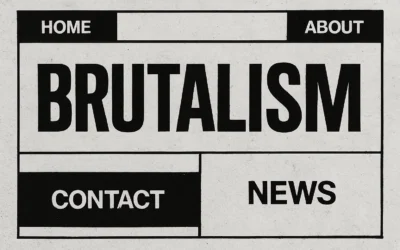nGen Works founder and BizCraft co-host Carl Smith thought he knew how to run a business until a cold winter’s morning and a persistent five-year-old proved him otherwise. Clark Buckner interviewed Smith about “Lessons From the Lemonade Stand,” a talk Smith has given at many different events and tech conferences. As you’ll read, it’s an engaging, enlightening story that provides a number of subtly subversive ideas on what it means to run a business in today’s tech economy. We also reference Giovanni’s interview with Carl regarding the Bureau of Digital Affairs
[soundcloud url=”https://api.soundcloud.com/tracks/181611767″ params=”color=ff5500&auto_play=false&hide_related=false&show_comments=true&show_user=true&show_reposts=false” width=”100%” height=”166″ iframe=”true” /]
Today is the Day
Smith’s daughter was the five-year-old instigator. At 5:30 a.m. on a 20-degree January day (in Florida, no less), Smith’s ebullient daughter bounded into his room and began jumping on his bed, saying “Today is the day!”
Like any half-awake parent, Smith asked, “The day for what?” She replied, “Today is the day for the lemonade stand!” He relayed to her that the weather wasn’t quite conducive to her desire to sell lemonade, but she replied with two words capable of cracking parents with even the strongest of wills: “You promised!”
As they make the sign, his daughter writes “FREE” on it. Smith told her, “I don’t think it should be free. I don’t think you understand the way business works.” That would be the first of his mistaken assumptions regarding his daughter that morning.
What made the moment even more powerful for Smith was the fact that, at the time, he was “a struggling entrepreneur. I had not been able to provide for my family. We were in massive debt, all these problems. And she looked at me and goes, ‘You’ve got to have faith.’”

The First Customer
Her first customer was a guy in a large pickup truck who wanted hot chocolate. She replied that they didn’t offer hot chocolate, but they would, so he should come back. Twenty minutes later, the guy comes back. He asks, “How much?” She beams, “It’s free!” So he gives her $10, which made Smith think, “Sir, I don’t think you’re teaching her the right lesson here.”
Again, it wasn’t Smith’s daughter that was learning a lesson. Smith said,
She listened to her customer, and throughout the day she got her younger sister to help. Sure enough, most times people gave money—until these young girls came along and asked how much the cookies were. She said, ‘Free,’ and they took them all! And they took the hot chocolate and walked off.
I looked at her, expecting her to be devastated. She had this huge smile on her face. I’m like, ‘Aren’t you upset that they took that?’ She goes, ‘No. It was free,’ like I didn’t get it. Then she looks at me and goes, ‘We’re done.’ And she was so happy that we were done.
Lessons from the Lemonade Stand
Among the many lessons his daughter taught him that day, Smith summarized the most helpful ones:
Kids are truly better entrepreneurs. She had an idea that she wanted to do something. She wouldn’t listen to a critic like me that explained to her nobody is going to buy lemonade in cold weather. She listened to her customers, and changed the product that they wanted. She let them set the price. Then she knew when she was done, and she moved on.
The amazing part of the story is when we go back inside. She had made $37 in like two hours. And me, a struggling entrepreneur, I was like, ‘This could work!’ She took us out to lunch, something I hadn’t been able to do in a long time. And so she rewarded her team.
You start to look at that and you realize kids don’t know things are wrong or bad until we teach them. They go out there with these ideas, and they’re flexible, and they don’t have their ego in it …. It took me a while to get over myself and go ‘How can she do this and I can’t?’
To hear more of Carl Smith’s story, as well as how The Bureau of Digital Affairs helps connect designers, developers, project managers, and creative directors, listen to the full TechnologyAdvice interview above. Connect with Smith @carlsmith on Twitter. Interview conducted by conference podcaster Clark Buckner.






Thanks Carl for a great interview. This was definitely one of my favorites from 2014.